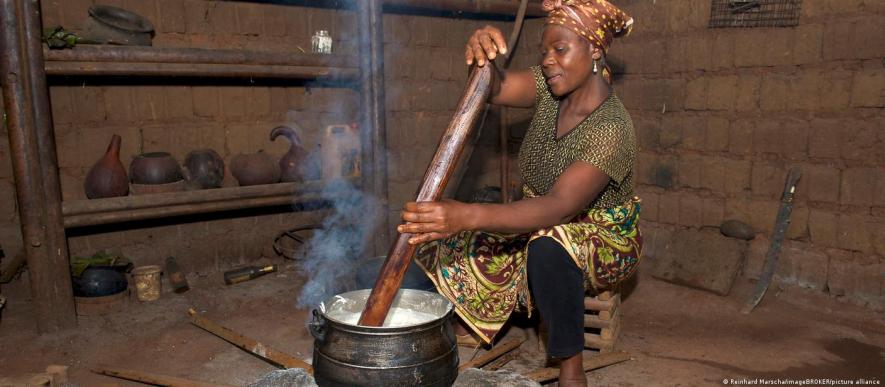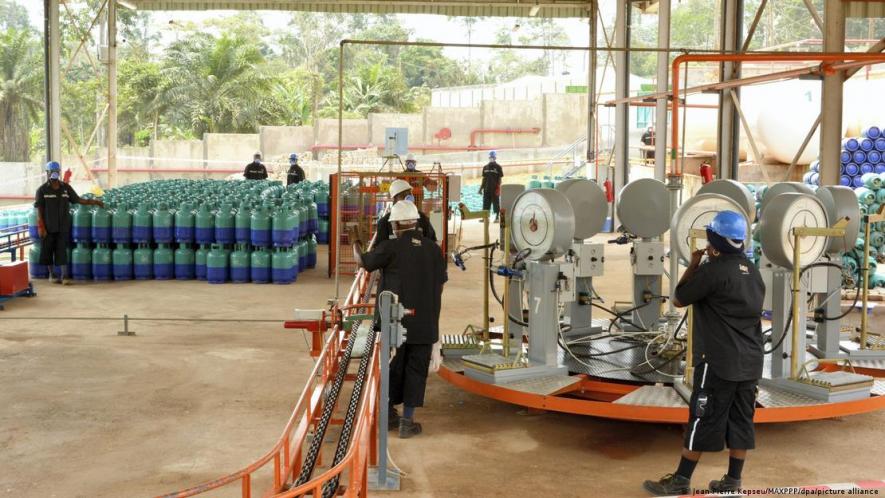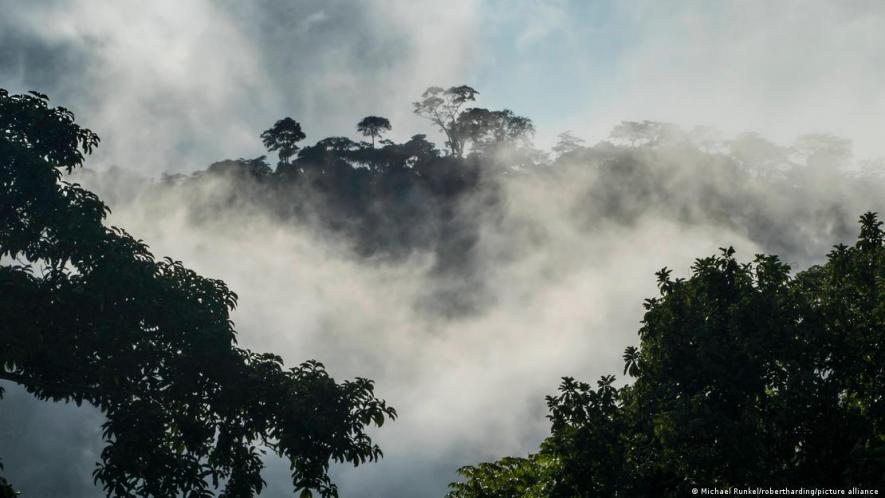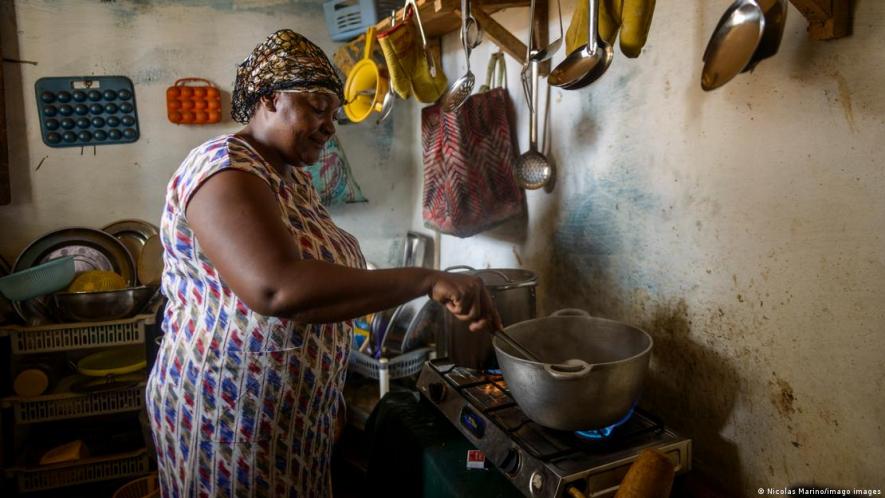Cameroonians Return to Wood Amid Gas Shortage

On a recent evening in Cameroon's capital, Yaounde, dozens of people were out trying to find full gas bottles.
"My gas finished ... and so I called my supplier to bring one bottle, but his gas was also finished," a woman carrying an empty gas cylinder on her head told DW. She was now out trying to source a replacement bottle, she added, but the distribution points she had visited didn't have any.
This has become a common complaint across many areas of Cameroon. The exact reasons for the shortage of domestic gas, as it's called in Cameroon, aren't clear.
Local media blame it on a combination of importation difficulties and speculation by gas retailers, who are hoarding bottles to sell at prices higher than the cap set by the government.
The cylinders filled with liquefied petroleum gas (LPG) are the most popular source of fuel used to cook food in Yaounde and Cameroon's biggest city, Douala. In these two cities, 63% of households cooked with gas in 2017, the most recent year for which statistics are available.
Some vendors have resorted to unscrupulous methods of making money amid the shortage. "I went to buy a bottle of gas and thought it was full," Collins Suh in Yaounde, who was carrying a gas cylinder on a motorcycle, told DW. "But when I tried to shake it, I discovered water escaping out of a little hole. It was water."

This plant is Yaounde can fill 5,000 bottles of gas a day
Protecting forests and people
The use of gas for cooking, especially in Cameroon's urban areas, has grown rapidly in the past few years thanks to an ambitious government master plan. When it was introduced in 2016, it aimed to more than triple the rate of LPG use and get 58% households across Cameroon cooking food with gas by 2030.
The master plan includes an investment of €400 ($392 million) to strengthen the infrastructure around LPG use — including storage, filling and transport.
Switching to LPG has several benefits for both people and the environment.
In Cameroon, people traditionally prepare food on stoves using wood fuel, while a fraction also use charcoal made from wood.
The harvesting of wood fuel is major contributor to deforestation in Cameroon, whose Congo Basin is home to the second largest rain forest area in the world after the Amazon.

Cameroon's vast rainforests are of global importance for the climate
Per unit of delivered cooking heat, burning wood also generates about five times the carbon emissions of LPG. That means cooking with gas contributes less to climate change.
Wood fuels are also hazardous to people's health, particularly if people cook indoors. By releasing tiny particles that can get deep into people's lungs, wood fuel stoves have been linked to pneumonia in children and cardiovascular disease and lung cancer in adults.
The time spent collecting wood, typically done by women, is also slashed in households using LPG.
Cooking with LPG has "the potential to protect forests as well as offering substantial health and societal benefits," finds a 2020 study by the UK's University of Liverpool into the use of LPG in Cameroon.
Back to wood
But the current gas shortage is forcing urban dwellers to turn to the tradition of cooking with wood or charcoal.
"An African woman must remember the roots. We are cooking on firewood," one woman said when asked what she was using to prepare food at the moment.
"As a result of the gas scarcity, I had to prepare jollof rice using a charcoal pot," another said.

Cameroon's government wants more people to cook with LPG, like this woman here, but needs to assure supply
Environmentalist Forbeseh Philip is concerned.
"It's not good news for the environment," he said from Douala. Although fewer people in Cameroon use wood than in other parts of Africa, he said, if urban dwellers revert to wood, "it means more wood leaving the rural areas to the cities."
Imported gas
Ever since Cameroon started producing natural gas in 2018, it has been processing part of this to supply the LPG domestic market.
But its refinery produces about 34,000 metric tons annually, which is only enough to meet around one-fifth of its domestic gas needs of some 150,000 metric tons a year.
The government has said it plans to import 120,000 metric tons of LPG this year, but so far this has failed to solve the current dearth of gas.
Edited by: Keith Walker
Get the latest reports & analysis with people's perspective on Protests, movements & deep analytical videos, discussions of the current affairs in your Telegram app. Subscribe to NewsClick's Telegram channel & get Real-Time updates on stories, as they get published on our website.
























